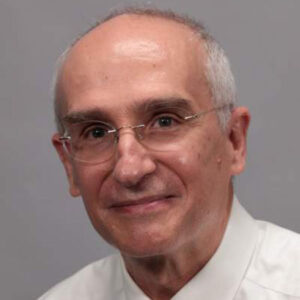Antonio Conejo
Home / Antonio Conejo
Presentations:
Security-Constrained Unit Commitment: A Decomposition Approach Embodying Kron Reduction
We address the day-ahead scheduling of electricity production units throughout a network imposing n-1 security constraints, which ensures uneventful operation under any single-branch failure. For realistic electric energy systems, this optimization problem, which is mixed-integer linear or nonlinear but convex, involves millions of continuous variables, millions of constraints, and thousands of binary variables. This problem is intractable if state-of-the-art branch-and-cut solvers are used. As a solution methodology, we propose a Benders-type decomposition technique with a dynamically enriched master problem. Such master problem incorporates scheduling (binary) decisions and decisions pertaining to under-contingency operating conditions. The subproblems represent the operation of the system under no failure and single-branch failure. As the algorithm progresses, the master problem incorporates additional under-contingency operating conditions, which increases its computational burden. We use Kron reduction to compact (reducing variables and constraints) the description of the under-contingency operating conditions in the master problem without losing accuracy, which renders major computational gains. The methodology proposed allows solving, within reasonable computing times, instances intractable with state-of-the-art branch-and-cut solvers and decomposition algorithms.
Rethinking Electricity Market Design: Lessons Learned and Future Needs
The principles underlying the design of restructured electricity markets that are in-use today were developed over three decades ago when power systems were considerably different than they are today. Systems of the past typically relied on large dispatchable thermal generators. This can be contrasted with power systems today, which are experiencing increasing penetrations of weather-dependent renewable energy sources that have limited dispatchability. Additionally, power systems are experiencing growing adoption of distributed energy resources and novel uses of electric energy by end customers, which adds to demand uncertainty and variability. However, these technologies also provide opportunities for more active participation of the demand-side. Given these significant changes in the structure of electric power systems, we are at a unique point at which the assumptions of electricity market design can be re-evaluated. While this re-examination is largely driven by changes in power system structure, we can also rely on lessons learned from the past three decades of market-restructuring experience. In this presentation, we highlight some of the challenges in designing electricity markets brought about by changes in system structure. We also discuss a number of lessons learned from market designs that have been implemented. We then suggest some important principles that could underlie future reforms of electricity market designs and raise design questions that require further research and examination.
Representing Uncertainty in Power System Operations: Approaches, Challenges and Solutions
Day-ahead operational tools currently used by the power industry, such as unit commitment or market clearing algorithms, do not explicitly represent the underlying supply/demand uncertainty. This seems appropriate in power systems with limited supply/demand uncertainty, such as thermal-dominated ones. However, as stochastic weather-dependent generation units dominate the production mix of a power system, and the impact of behind-the-meter resources on its demand becomes significant, not carefully representing the underling uncertainty in operational tools may result in economic inefficiency and/or operational insecurity. This presentation reviews current approaches to represent uncertainty in day-ahead operational tools for the power industry, describes the significant challenges faced, and suggests remedial actions.
© Copyright 2023 IEEE — All rights reserved. A not-for-profit organization, IEEE is the world’s largest technical professional organization dedicated to advancing technology for the benefit of humanity.


